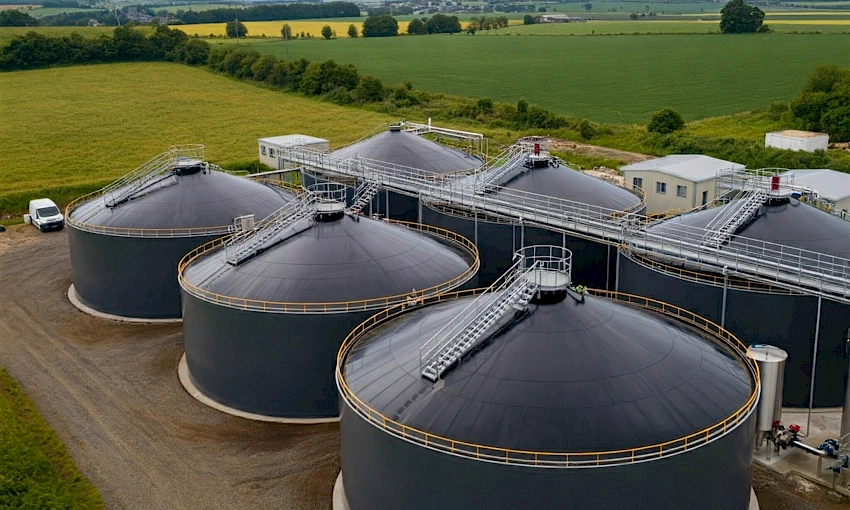
The Power of Biogas: Transforming Waste into a Sustainable Future
Across the globe, communities and nations are facing a growing challenge: managing solid waste. Landfills are overflowing, and traditional disposal methods pose environmental risks. But what if we could turn this waste into a valuable resource? That's where biogas technology comes in.
Biogas: Turning Waste into Energy and Opportunity
Biogas is a renewable energy source produced from the breakdown of organic matter, such as food scraps, agricultural residues, and sewage sludge. Through a process called anaerobic digestion, microorganisms break down this waste in the absence of oxygen, producing biogas, a mixture of methane and carbon dioxide. This biogas can be used to generate electricity, heat homes, and even fuel vehicles.
Environmental and Economic Benefits: A Win-Win for Communities
The benefits of biogas extend far beyond just waste management. Here's how it can contribute to a more sustainable future:
-
Reduced Greenhouse Gas Emissions: Biogas plants capture methane, a potent greenhouse gas, preventing it from escaping into the atmosphere. This helps mitigate climate change and improve air quality.
-
Waste Diversion: By processing organic waste, biogas plants reduce the amount of waste sent to landfills, extending their lifespan and minimizing environmental impact.
-
Renewable Energy Generation: Biogas provides a clean and reliable source of energy, reducing reliance on fossil fuels and promoting energy independence.
-
Economic Growth: Biogas plants create jobs, stimulate local economies, and generate revenue from the sale of biogas and digestate (the nutrient-rich byproduct of anaerobic digestion).
-
Improved Soil Health: Digestate can be used as fertilizer, improving soil health and reducing the need for chemical fertilizers.
Addressing Concerns: Safe and Sustainable Biogas
We understand that communities may have concerns about biogas plants, such as odor, noise, and safety. However, modern biogas plants utilize advanced technologies and strict operational protocols to minimize these impacts:
-
Odor Control: Biofilters and other technologies effectively neutralize odors, ensuring minimal impact on surrounding areas.
-
Noise Reduction: Soundproofing measures and careful site selection help minimize noise pollution.
-
Safety Standards: Biogas plants adhere to strict safety regulations to prevent accidents and protect public health.
Success Stories: Biogas in Action
Around the world, biogas plants are proving their worth. Here are a few examples:
-
Södertörn Biogas Plant (Sweden): This plant processes food waste and sewage sludge, producing biomethane that is injected into the natural gas grid, fueling vehicles and heating homes.
-
Straubing Biogas Plant (Germany): One of the world's largest agricultural biogas plants, it generates enough electricity to power 9,000 homes and provides district heating.
-
Hyperion Water Reclamation Plant (USA): This plant uses sewage sludge to generate electricity, offsetting a significant portion of its own energy needs.
Turning Waste into Wealth: The Power of Biogas
In today's world, where environmental sustainability and energy security are paramount concerns, biogas technology offers a promising solution. By harnessing the power of organic waste, biogas plants can generate clean energy, reduce greenhouse gas emissions, and create valuable byproducts.
The Power of Biogas
Biogas is a versatile fuel source that can be used for a variety of applications, including:
-
Electricity Generation: Biogas can be burned to generate electricity, powering homes, businesses, and even entire communities.
-
Biomethane Production: Upgraded biogas, known as biomethane, can be injected directly into the natural gas grid, providing a sustainable alternative to fossil fuels.
-
Heat and Cooling: Biogas can be used to generate heat for buildings and industrial processes, as well as for absorption cooling systems.
-
Fertilizer Production: Digestate, a nutrient-rich byproduct of the biogas production process, can be used as a high-quality fertilizer for agriculture.
The Economic Benefits of Biogas
In addition to environmental benefits, biogas plants offer significant economic advantages:
-
Reduced Waste Disposal Costs: By converting waste into energy, biogas plants can reduce the need for landfills and reduce waste disposal costs.
-
Revenue Generation: The sale of biogas, biomethane, and digestate can generate substantial revenue for municipalities and businesses.
-
Job Creation: Biogas plants create jobs in construction, operation, and maintenance, stimulating local economies.
-
Energy Independence: By reducing reliance on fossil fuels, biogas plants contribute to energy security and independence.
Let's Work Together
If you're a municipality or business looking to harness the power of biogas, Aces Process is here to help.
We can work with you to design and build a biogas plant that meets your specific needs and delivers maximum value.
Take Action: Contact Aces Process Today
If you're seeking sustainable waste management and renewable energy solutions, contact Aces Process today.
Let's work together to turn your waste into a valuable resource and build a cleaner, more prosperous future.














































